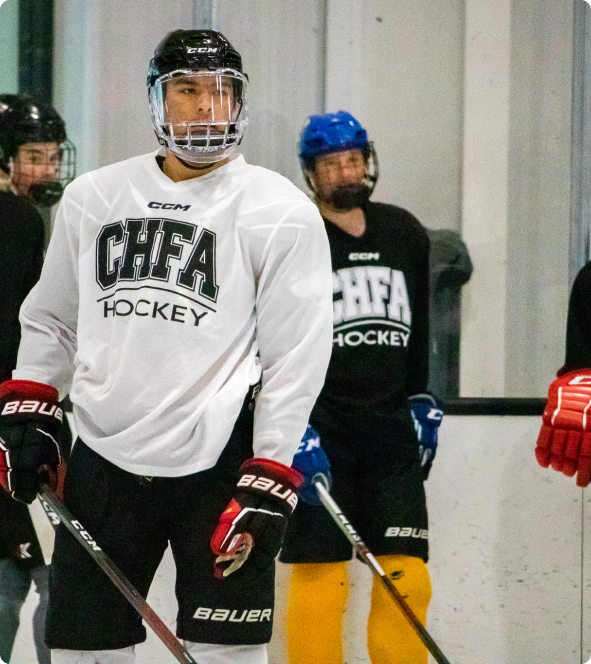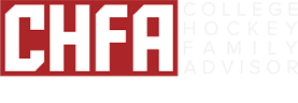NCAA Eligibility
Home » NCAA Eligibility


NCAA Eligibility
The NCAA, or National Collegiate Athletic Association, serves as the athletics governing body for more than 1,280 colleges, universities, conferences and organizations in Division I, II and III. The NCAA is committed to the student-athlete and to governing competition in a fair, safe, inclusive and sportsmanlike manner.
NCAA regulations require all incoming student-athletes to meet a prescribed level of academic performance while maintaining their amateur status before entering college. Those who wish to compete at the Division I or II level must be certified by the NCAA Eligibility Center (more info below), which looks at two main criteria:
Academics
Note: Due to the effects of the coronavirus, the NCAA will not require standardized test scores (ACT/SAT) for student-athletes entering college in the in Fall 2022.
NCAA student-athletes in Division I or II must meet minimum academic criteria that takes into account high school grades as well as scores on standardized tests (the SAT or ACT). Those scores are weighted on a sliding scale to determine initial eligibility.
The grade-point average considered by the NCAA only includes what are considered "core courses" - and all prospective students must have taken 16 of these core courses, including 10 prior to the seventh semester of high school. The NCAA Eligibility Center includes important details on those requirements, plus lists of approved core courses at specific high schools or in each Canadian province.
What You Need to Do
Register for the NCAA Eligibility Center (typically during Grade 11; more info on the Eligibility Center below).
- Take 16 NCAA-approved core courses in your first four years of high school; you can find a list of approved courses for each U.S. high school or Canadian province on eligibilitycenter.org. Take at least 10 of those courses prior to the start of your senior year.
- Register for and take either the SAT or the ACT. Plan to take it more than once; the NCAA will consider your best score from each subject area should you take multiple tests.
- Submit transcripts and test scores to the NCAA Eligibility Center.
- If you would like to take university classes after high school but before beginning your NCAA playing career, do so as a part-time student – do not enroll full-time.
- Please note SAT and ACT tests are considered optional but some schools in the NCAA
For more information on academic eligibility requirements visit the links below or check out our FAQ.

Guide for the College-Bound Student-Athlete (.pdf) – The Guide is a highly comprehensive tool that has been designed to help navigate the NCAA initial-eligibility process and to prepare student-athletes for transitioning from high school to becoming an NCAA Division I or II student-athlete.
Initial-Eligibility Brochure (.pdf) – A quick guide to the standards and steps that it takes to become an NCAA Division I or II student-athlete.
Eligibility Center Quick Reference Sheet – You can find the free .pdf download of the brochure here https://www.ncaapublications.com/p-4583-2019-20-ncaa-initial-eligibility-brochure-100pack.aspx

Amateurism
NCAA student-athletes are amateurs and cannot have played for a professional sports team prior to enrollment. In hockey, specifically, this means that anyone who signs a contract with or plays for a team in the Canadian Hockey League (OHL, QMJHL or WHL) forfeits their NCAA eligibility.
The NCAA Eligibility Center will certify each prospective student-athlete's amateur status prior to clearing them for competition at the Division I level.
What You Need to Do
- Do not accept payment or gifts based upon your ability as a hockey player.
- Do not sign a contract or play a game (even an exhibition game) for a professional team, including those in the CHL.
- You may attend a camp with a professional team for up to 48 hours if they are covering expenses or longer if you cover all expenses.
- Junior, prep or high school teams may cover some or all of your costs to play for them, as long as they are actual and necessary expenses.
For more information on amateurism eligibility requirements, visit the links below or check out our FAQ.


NCAA Eligibility
The NCAA Eligibility Center in Indianapolis, Indiana - sometimes referred to as the "clearinghouse" - certifies the academic and amateur credentials of all college-bound student-athletes who wish to compete in NCAA Division I or II athletics.
NCAA Eligibility Center eligibilitycenter.org
If you plan to participate in intercollegiate athletics at an NCAA Division I or II institution, you must have both your academic and amateurism status certified by the eligibility center before representing the institution in competition. We recommend that prospective student-athletes register with the Eligibility Center by your grade 11 year. You likely should review the site before that time to ensure compliance with the NCAA's requirements, particularly as they relate to core courses.
The eligibility center will collect data from high schools, sport-sanctioning bodies and, most importantly, high school student-athletes in order to make eligibility decisions. Ultimately, the individual student-athlete is responsible for achieving and protecting his or her eligibility status. If any penalties are assessed by the NCAA Eligibility Center, you will have an opportunity to appeal the decision.
Additional information regarding NCAA amateurism rules is available on the NCAA Eligibility Center’s resource page or by visiting our FAQ.


